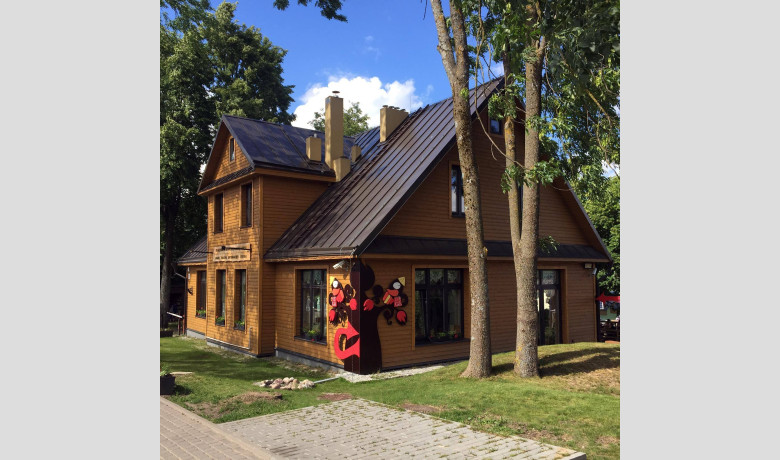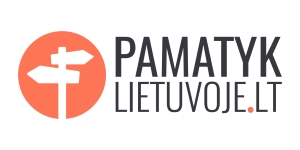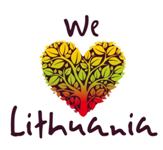The history of Trakai Region is characterized by its impressive landscape and the diversity of people of various nationalities who have been living peacefully together for many centuries. Since the times of the Grand Duke of Lithuania Vytautas (14th-15th centuries), people of many nationalities (Karaites, Tatars, and others) moved to Trakai following the Duke’s invitation. As a result, a variety of traditional houses of prayer for every minority appeared there. The town blossomed in new cultural traditions, customs, and useful crafts emerging together with the Tatar mosque, the Karaite kenesa, Orthodox churches, and Ukrainian Greek Catholic, and Catholic churches.
In 2015, the Culture and Crafts Association of Trakai started new activities in the Trakai Centre of Regional Traditional Crafts in order to foster the importance of the colorful national cultural heritage. Its main objective is to preserve the cultural heritage of different nations including traditions and holiday customs, recipes, and other crafts. The Centre aims at ensuring the continuity of traditional crafts and making them of interest to both Trakai residents and visitors to the town. During the summer season and at various celebrations, local craftsmen show their skills including knitting, carving, producing leather products, etc.
It is important to emphasize the cultural heritage of all nations that lived or still live in Trakai. Therefore, visitors have a chance to take a closer look at the traditions and crafts of Lithuanians, Karaites, Georgians, and Tatars.
One of the ways to ensure the continuity of traditional crafts is through educational programs. These are practical classes and their length varies between one and a few hours. They give participants an opportunity to learn or excel in a wide range of skills. These include bread or kibinai baking, wool felting, shaping soap, producing straw decorations, creating various sorts of tea, or weaving bands or carpets…
Trakai Centre of Regional Traditional Craft provides a wide range of services. It brings together craftsmen from Trakai District, provides consultancy about their crafts and craftsmanship certification, and displays their creations by organizing educational programs, celebrations, and fairs. A variety of handmade products can be purchased at the souvenir shop.
Wide Variety of Crafts
Trakai Centre of Regional Traditional Craft offers more than ten different educational programs. Professional craftsmen will help participants enhance their skills in a variety of areas. Anyone can learn how to make wool felt, or produce soap, woven bands, or rugs. Participants can use artistic decorative creations made during classes and decorate their homes with hanging ornaments and toys made of straw, angels carved from wood, or plant-decorated wooden articles. For example, during the Stone Incantation class one can learn more about the meaning of the signs and colors used by the Balts in ancient times, while in the Dream-Reading Doll class participants explore the history of puppet making, traditions surrounding Lithuanian national costumes and the secrets of the dream-reading world.
There is a charge for these educational programs and they are held in the Lithuanian, Russian, Polish, and English languages. Those who want to attend these classes have to register by phone or on the website. Each participant of the educational program is provided with a certificate of a beginner craftsman.
Cooking Treasures
The list of traditional crafts of Trakai District would never be complete without the local cuisine heritage. Throughout the year, the center offers a variety of culinary lessons to those who wish to learn more about the cooking traditions of the Dzūkija region, of the Tatars, Karaites, and Georgians.
During these special classes, visitors will be given the opportunity to learn the secrets of making the Karaite kibinsor chamur dolma, a homemade dumpling soup. Also, you will find out more about famous dishes including Tatar chak-chak, Georgian khachapurior khinkali. Guests will master the cooking traditions of the Dzūkija Region by baking rye bread, buckwheat cake babka, homemade honey cakes, or ring-shaped rolls in an ancient oven.
If you want to prepare celebratory meals in accordance with ancient traditions, the Trakai Craft Centre organizes special educational events before the national holidays. In anticipation of Christmas Eve, visitors are invited to learn more about traditional dishes, customs, and games associated with this holiday and bake kūčiukai, traditional Lithuanian pastries served on Christmas Eve. In preparation for Easter, you could attend a lesson on the art of Easter egg painting and learn more about the meaning of colors, symbols, and other aspects of this craft. Before the shortest night of the year, which occurs on Saint John’s Eve, the Tea Lab educational class will capture your senses with a variety of flavors and exclusive ancient tea-making recipes.
Educational Trips
Trakai Centre of Regional Traditional Crafts also organizes a variety of walking, biking, and boat trips. During the winter months, the center invites everyone to take a walk on the frozen Lake Galvė and to listen to the stories and legends told about the lake itself and its islands.
Those wishing to learn one of the oldest crafts, which is beekeeping, should take the quiet forest path to the ethnographic village of Tiltai in Dzūkija District. Led by a beekeeper, inquisitive participants will learn all about bees and the way to make friends with them.
The Craft Centre also organizes bike trips to visit the manor of the Count Tyszkiewicz family. Passing through the hills, gravel roads, and meadows three other estates can be reached including the Trakai Vokė, Lentvaris, and Užutrakis estates.
Children’s Summer Camps
In the summertime, the Trakai Centre of Regional Traditional Craft organizes creative and lively children’s camp programs. Led by experienced and enthusiastic guides, children learn about the local area and engage in creative games, discussions, teamwork, or individual activities.
Small groups (up to 16 children) provide new opportunities for communication and self-expression. Camp activities encourage children’s creativity and independence, form national self-awareness, and strengthen ethnocultural values. The camp children are introduced to traditional crafts, their history, and the significance of fostering them. The goal is to provide children with an opportunity to acquire practical knowledge and develop skills essential to everyday life. Therefore, children are taught to carry out various tasks independently – from baking sweet desserts to making art or household items.










